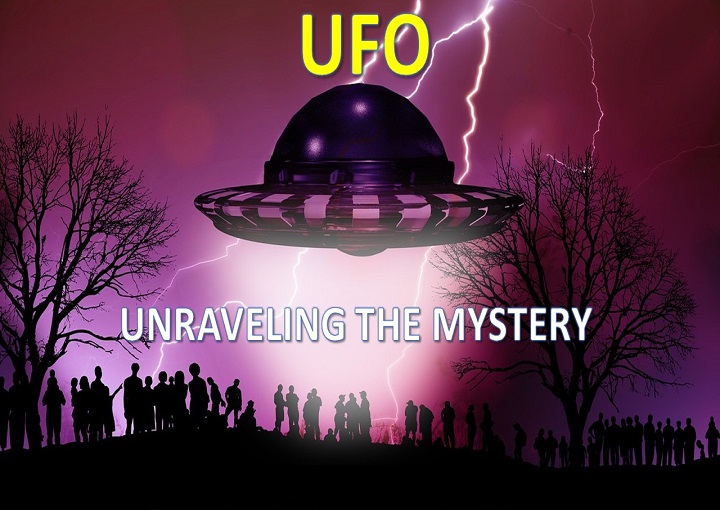Delve into the enigmatic realm of UFOs as we embark on a quest to unravel the mysteries surrounding Unidentified Flying Objects. Explore compelling sightings, witness accounts, and intriguing evidence that challenge conventional explanations. From alleged encounters to unexplained phenomena, join us in a captivating exploration of the UFO phenomenon. Delve into the realms of speculation, science, and skepticism as we seek to shed light on these captivating and elusive aerial mysteries.
Introduction:
Unidentified Flying Objects, commonly known as UFOs, have captivated the human imagination for decades. These enigmatic aerial phenomena have been the subject of countless sightings, reports, and speculations. In this article, we will delve into the world of UFOs, exploring their historical significance, scientific explanations, famous incidents, government involvement, and the impact they have had on society.
What is a UFO?
A UFO refers to any airborne object or phenomenon that cannot be readily identified or explained. These objects often exhibit unconventional flight patterns, unusual shapes, or advanced technological capabilities. While the term “UFO” is often associated with extraterrestrial spacecraft, it simply denotes an unknown aerial phenomenon.
Historical sightings and reports
Throughout history, there have been numerous accounts of UFO sightings. Ancient civilizations depicted strange objects in their artwork, indicating possible encounters with unidentified aerial phenomena. In modern times, reports of UFO sightings gained significant attention, especially during the mid-20th century.
Scientific explanations and skepticism
When it comes to UFOs, scientific explanations are often sought to understand the nature of these mysterious objects. Some UFO sightings can be attributed to misidentified natural phenomena, such as weather balloons, meteors, or atmospheric anomalies. However, there are cases that defy easy explanation, leaving room for further investigation.
Famous UFO incidents
Certain UFO incidents have gained iconic status due to their scale and the number of witnesses involved. The phenomenon known as the “Phoenix Lights” in 1997, where a series of lights appeared over Arizona, remains one of the most famous UFO sightings. Another notable incident is the “Battle of Los Angeles” in 1942 when unidentified objects triggered a massive anti-aircraft response during World War II.
The Roswell incident
The Roswell incident, which occurred in 1947, remains one of the most discussed UFO incidents in history. It involved the alleged crash of an unidentified object near Roswell, New Mexico, and subsequent claims of a government cover-up. While official explanations point to a weather balloon, conspiracy theories persist, suggesting the recovery of extraterrestrial spacecraft.
Government investigations and declassified documents
Governments around the world have conducted investigations into UFO sightings. The United States, for instance, established Project Blue Book in the 1950s to study UFO reports. Although the project officially concluded that there was no evidence of extraterrestrial activity, declassified documents reveal a more complex history of government interest and involvement.
Alien abduction claims
In addition to sightings, some individuals have claimed to have been abducted by aliens. These accounts often involve detailed descriptions of encounters with otherworldly beings and examinations aboard their spacecraft. While skepticism surrounds such claims, they have contributed to the popular perception of UFOs and have fueled discussions on the possibility of extraterrestrial life.
The role of media and pop culture
Media and pop culture have played a significant role in shaping public perception of UFOs. Movies, television shows, books, and documentaries have depicted encounters with aliens and UFOs, sometimes sensationalizing and dramatizing these experiences. This has both sparked public interest and created a sense of intrigue around the topic of UFOs. From classics like “Close Encounters of the Third Kind” to modern TV shows like “The X-Files,” UFOs have become ingrained in popular culture, fueling our fascination with the unknown.
UFO conspiracy theories
The existence of UFOs has given rise to numerous conspiracy theories. Some suggest that governments are hiding evidence of extraterrestrial life and advanced technology. The alleged existence of secret government programs, such as Area 51, has become a focal point for conspiracy enthusiasts, who believe that it holds classified information about UFOs and aliens.
Debunking myths and misconceptions
While UFO sightings continue to capture attention, it’s important to separate fact from fiction. Many UFO sightings can be attributed to natural or man-made phenomena, optical illusions, or hoaxes. Debunking these myths and misconceptions is crucial to maintaining a rational and scientific approach when studying UFOs.
Current research and advancements
In recent years, scientific research into UFOs has gained renewed interest. Organizations like To The Stars Academy of Arts and Science have emerged, bringing together scientists, engineers, and intelligence experts to investigate unidentified aerial phenomena. Advancements in technology, such as improved sensors and satellite imagery, are aiding in the collection of data to better understand these phenomena.
The search for extraterrestrial life
One of the underlying questions behind the UFO phenomenon is the search for extraterrestrial life. Scientists are actively exploring the possibilities of life beyond Earth through initiatives like the Search for Extraterrestrial Intelligence (SETI) and missions to other celestial bodies. While the existence of UFOs does not definitively prove the existence of aliens, it fuels the imagination and curiosity surrounding this ongoing quest.
The impact of UFO sightings on society
UFO sightings and the ongoing discourse surrounding them have had a significant impact on society. They have sparked scientific curiosity, influenced popular culture, and even shaped public opinion on the existence of extraterrestrial life. Additionally, they have prompted discussions on government transparency and accountability, as well as the boundaries of scientific inquiry.
Conclusion
The mystery of UFOs continues to captivate and perplex us. While many sightings can be explained by natural or human causes, there remain cases that defy easy explanation. As we strive to unravel the truth behind these unidentified aerial phenomena, it is crucial to approach the subject with an open mind, relying on scientific inquiry and critical thinking. Whether UFOs are evidence of extraterrestrial life or simply unexplained phenomena, they remind us of the vastness of the universe and the enduring human quest for knowledge.
FAQs
1. Are UFOs proof of extraterrestrial life?
Ans. While UFOs are often associated with the possibility of extraterrestrial life, they do not provide definitive proof. Many sightings have alternative explanations, and the scientific community continues to investigate the nature of these phenomena.
2. Has any government officially confirmed the existence of UFOs?
Ans. While some governments have released declassified documents and conducted investigations into UFO sightings, none have provided conclusive evidence of extraterrestrial visitation. Official explanations often attribute sightings to natural or human-made phenomena.
3. Are all UFO sightings hoaxes or misidentifications?
Ans. Not all UFO sightings can be dismissed as hoaxes or misidentifications. While a significant number can be explained by conventional causes, there remain cases that defy easy explanation and warrant further investigation.
4. How can I differentiate between credible UFO sightings and hoaxes?
Ans. Credible UFO sightings often involve multiple witnesses, physical evidence, and detailed documentation. They are also reported by reliable sources such as pilots, military personnel, or trained observers. Hoaxes, on the other hand, usually lack substantial evidence or are easily debunked upon closer examination.
5. What should I do if I witness a UFO sighting?
Ans. If you witness a UFO sighting, it is important to document the event by taking photos or videos if possible. Note the date, time, location, and any other relevant details. Report the sighting to credible UFO research organizations or local authorities who may be interested in collecting data.
6. Are there any ongoing scientific studies or research projects focused on UFOs?
Ans. Yes, there are ongoing scientific studies and research projects dedicated to investigating UFOs. These include collaborations between scientists, government agencies, and private organizations, aimed at collecting data, analyzing sightings, and exploring possible explanations for these phenomena.
7. Can UFO sightings be explained by advanced human technology?
Ans. Some UFO sightings may involve classified military aircraft or experimental technology that is unknown to the public. In such cases, the sightings are not extraterrestrial in nature but rather the result of human technological advancements.
8. How has the perception of UFOs changed over time?
Ans. The perception of UFOs has evolved over time. In the early years, UFOs were often associated with extraterrestrial visitation. However, as scientific understanding and skepticism increased, alternative explanations for sightings gained prominence. Today, there is a more nuanced approach that acknowledges the need for further investigation and critical analysis.
9. Are there international efforts to study UFOs?
Ans. Yes, there are international efforts to study UFOs. Some countries have established government-funded or independent research organizations dedicated to investigating UFO sightings and related phenomena. Collaboration and information-sharing between these organizations are crucial for a comprehensive understanding of the subject.
10. How can UFO sightings impact society and culture?
Ans. UFO sightings have had a profound impact on society and culture. They inspire curiosity, fuel scientific inquiry, and stimulate artistic and literary creations. UFOs have become ingrained in popular culture, influencing movies, TV shows, books, and even fashion. Additionally, they have sparked debates on the existence of extraterrestrial life, government transparency, and the limits of human knowledge.

